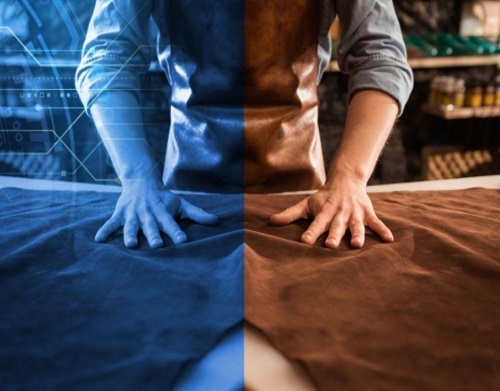18 October 2021
Jaguar Land Rover has partnered traceability provider Circular, UK tannery Bridge of Weir Leather Company and the University of Nottingham to trial the use of traceability technology in the leather supply chain, writes Leatherbiz.

As well as tracking compliance, the digital process enabled the carmaker to assess the carbon footprint of its leather supply network, tracing Bridge of Weir’s lowest carbon leather from farm to finished article.

A ‘digital twin’ of the raw material was created, allowing its progress to be tracked through the leather supply chain simultaneously in the real world and digitally. A combination of GPS data, biometrics and QR codes was used to digitally verify the movement of leather using blockchain technology.
Defining the verification process has created a repeatable blueprint for tracing a single piece of leather at every stage. It can be used across Jaguar Land Rover’s global supply chain and by other industries that rely on leather, such as fashion and footwear, said the companies.
Dr Warren Bowden, innovation and sustainability director of Scottish Leather Group, said “There is a clear opportunity to implement blockchain technology to enhance the world-leading standards of traceability and transparency that exist within UK agriculture and its Cattle Tracing Scheme.
To read the rest of this story, click on Leatherbiz – Blockchain blueprint

使用條款 | 隱私政策 | APLF 可持續發展